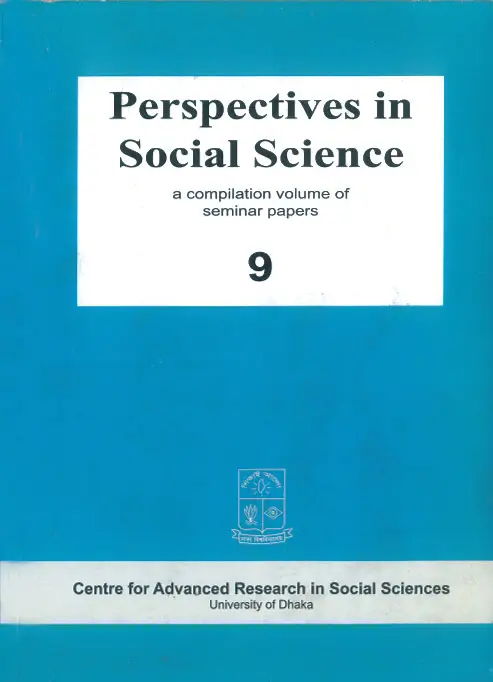
Perspectives in Social Science
Volume 9 August 2010
Perspectives in Social Science
Democratisation in Bangladesh: An Analysis
Perspectives in Social Science
Volume 9 August 2010
DOI:
ISSN :
Abstract
This paper attempts to inquire into the quest for democratisation in Bangladesh since 1990 and later on in 2000-2008. According to the theory of democratisation the process of democratic transition is followed by the process of democratic consolidation or institutionalization of democracy. Bangladesh has experienced democratic transition with the downfall of the autocratic regime in 1990 through an unprecedented pro-democratic movement involving all political forces of the country. Since then the country has been able to show its democratic credibility with the holding of five elections for Jatiya Sangsad (JS/National Assembly/Parliament). The last one has been held on December 29, 2008 for 9th Jatiya Sangsad (JS/National Assembly /Parliament). In this context, both the scholars as well as 'activists' of democracy seem to identify pre-election political process of the country as an attempt for democratic transition. We argue that 'transition' of power through constitutional means from the hand of a constitutionally designed caretaker government (CTG) to an elected government is somewhat a regular process. Though the 'transition' of 2008 and 'democratic transition' of 1990 could not reasonably be termed the same, they are never the less essential processes for democratic consolidation.
